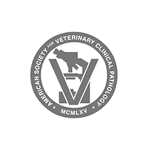MVista® Histoplasma Antigen Quantitative EIA – All Antigen Tests are NOT Created Equal
Histoplasma antigen detection is commonly used for diagnosis, treatment monitoring, and detection of disease relapse in veterinary medicine. The gold-standard for Histoplasma antigen detection is the MVista® Histoplasma Antigen Quantitative enzyme immunoassay (EIA). First made commercially available almost 20 years ago, it has been modified since to optimize diagnostic performance, turnaround time, and cost-efficiency.
More recently a second Histoplasma Antigen EIA has been made available. The first iteration (Alpha, Immy) used a polyclonal capture antibody and had poor diagnostic performance in humans. Data for dogs and cats are not available. A modification of this test using a monoclonal capture antibody (Clarus, Immy) is now available. It is FDA cleared for detection of antigen in human urine but is not USDA approved for use in animals. To offer the test commercially, a veterinary diagnostic laboratory would need to develop/validate a test for veterinary species using the test kit components (analyte specific reagents, ASR). Peer-reviewed published data regarding the diagnostic performance of the Immy Histo EIA (ASR- now available as Clarus) are available for dogs and cats (see below).
Diagnostic Performance
The MVista® Histoplasma Antigen EIA has a high diagnostic sensitivity (92% and 94%) and specificity (99% and 98%) in dogs and cats (Table 1). This has been investigated in multiple studies including dogs and cats with various forms of histoplasmosis (localized and disseminated). The study findings have been reported in peer-reviewed publications [1
Collectively, these findings clearly demonstrate that the MVista® Histo EIA is superior to the Immy Histo EIA for the diagnosis of histoplasmosis in dogs and cats.
Table 1: Combined diagnostic performance of the MVista® Histoplasma Antigen EIA and Immy Histoplasma EIA reported in peer-reviewed publications
| Test | Sample | Species | Service Lab / Manufacturer |
Sensitivity (%) |
Range (%) |
Specificity (%) |
Range (%) |
Ref |
|---|---|---|---|---|---|---|---|---|
| Antigen EIA |
Urine | Canine | MVD* | 92 | 89-95 | 99 | 99-100 | 2,4 |
| IMMY^ | 70 | 70 | 99 | 99 | 2 | |||
| Feline | MVD* | 94 | 94 | 98 | 97-100 | 1,3 | ||
| IMMY^ | 77 | 77 | 97 | 97 | 1 |
MVD, MiraVista Diagnostics – MVista® Histoplasma Antigen Quantitative EIA; Immy, Histoplasma EIA- ASRs
Treatment Monitoring
The MVista® Histoplasma Antigen EIA is useful for treatment monitoring. This has been investigated in a prospective study that was reported as a peer-reviewed publication [5
Since antigen concentrations decrease during antifungal treatment, detection of low antigen concentrations is vital for treatment monitoring. Two peer-reviewed publications have shown only moderate-poor overall agreement between the Immy Histo EIA and the MVista® Histo EIA during and after treatment (Table 2) [1
Collectively, these studies suggest that only the MVista Histo EIA is useful for treatment monitoring in dogs and cats with histoplasmosis.
Table 2: Overall agreement between the MVista® Histoplasma antigen EIA and Immy Histoplasma antigen EIA in dogs before, during, and after antifungal treatment.
| MVista® Histoplasma Antigen EIA | |||
|---|---|---|---|
| Immy Histoplasma Antigen EIA | Positive | Negative | |
| Positive | 54 | 2 | |
| Negative | 42 | 104 | |
Sample Type – Versatility
The MVista® Histoplasma Antigen EIA has been validated for serum, plasma, urine, CSF, and BAL fluid. While urine is most commonly tested, there are times when testing a different sample type is needed. For example, approximately 4-5% of dogs and cats with histoplasmosis will test negative for antigen in urine but positive in serum. As such, testing serum for antigen is recommended if suspicion of histoplasmosis remains and no antigen is detected in urine. The Immy Histo EIA is only cleared for testing urine in humans, which is also the only sample type that has been investigated in dogs and cats.
Highest Quality Service
The MVista® Histoplasma Antigen EIA is performed at a single reference service laboratory following the highest industry standards- as demonstrated by CLIA and CAP (College of American Pathologists) certifications. It is run twice daily Tues-Fri and once on Monday and Saturday. This testing schedule provides same day results in >90% of samples. Moreover, MiraVista Diagnostics is supported by a robust clinical support team including experts in infectious disease and diagnostic medicine who are available for case consultation every weekday (p: 888-841-8387 or labsupport@miravistalabs.com). Your questions and comments are encouraged.
REFERENCES:
- Rothenburg L, Hanzlicek AS, Payton ME. A monoclonal antibody-based urine Histoplasma antigen enzyme immunoassay (IMMY(R)) for the diagnosis of histoplasmosis in cats. J Vet Intern Med 2019;33:603-610.
- Clark K, Hanzlicek AS. Evaluation of a novel monoclonal antibody-based enzyme immunoassay for detection of Histoplasma antigen in urine of dogs. J Vet Intern Med 2020.
- Cook AK, Cunningham LY, Cowell AK, et al. Clinical evaluation of urine Histoplasma capsulatum antigen measurement in cats with suspected disseminated histoplasmosis. J Feline Med Surg 2012;14:512-515.
- Cunningham L, Cook A, Hanzlicek A, et al. Sensitivity and Specificity of Histoplasma Antigen Detection by Enzyme Immunoassay. J Am Anim Hosp Assoc 2015;51:306-310.
- Hanzlicek AS, Meinkoth JH, Renschler JS, et al. Antigen Concentrations as an Indicator of Clinical Remission and Disease Relapse in Cats with Histoplasmosis. J Vet Intern Med 2016;30:1065-1073.
- Wilson AG, KuKanich KS, Hanzlicek AS, et al. Clinical signs, treatment, and prognostic factors for dogs with histoplasmosis. J Am Vet Med Assoc 2018;252:201-209.








